The world last week: The way out of the crisis
(Baonghean) - Russia announced that it will mass produce the Covid-19 vaccine next September, and could become the first country in the world to have a vaccine, although the World Health Organization has warned about the speed of testing, as well as safety and effectiveness. Difficulties piled on difficulties, Lebanon fell into tragedy after the horrific explosion in the capital Beirut, making it difficult for the country to get back on its feet.
Accelerating the vaccine race
Normally, the process of completing a vaccine usually takes 10-15 years. In the context of the pandemic still haunting the world, vaccine production is being accelerated by governments and leading pharmaceutical companies. According to the World Health Organization (WHO), the race for a Covid-19 vaccine continues at a dizzying pace.
More than 100 vaccines are being developed around the world, but only four – Moderna, AstraZeneca, SinoVac and Pfizer – have reached Phase 3 human trials, the final stage of clinical evaluation. It is too early to say which candidate will be successful, so health experts are cautious.
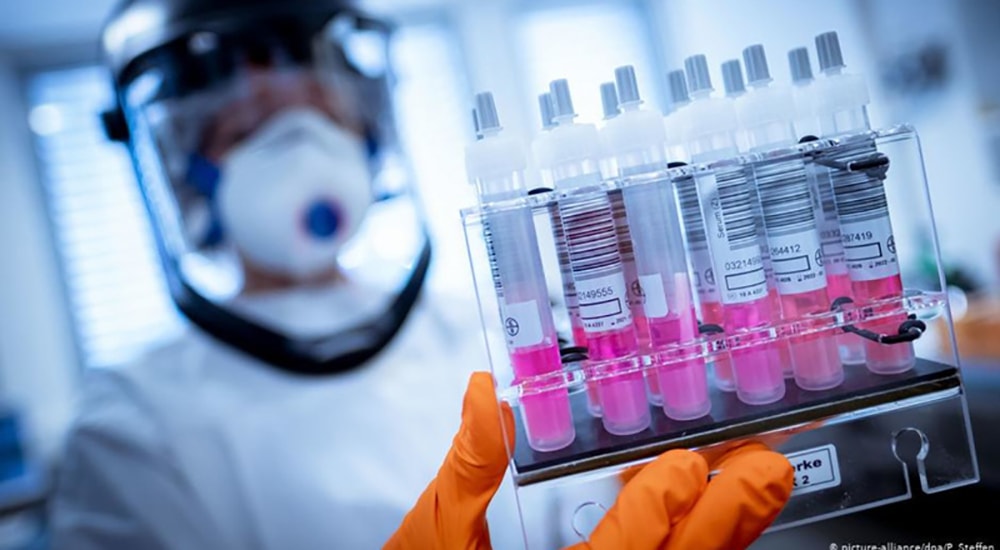 |
| Clinical trials of the vaccine on humans in Russia have been underway since June. Photo: Reuters |
That is why, when Russia announced plans last week to widely distribute its Covid-19 vaccine in September, the WHO called on Moscow to follow guidelines for safe and effective vaccine production. The WHO's comments came amid concerns about the speed of Russia's vaccine development. Western scientists have previously expressed doubts about Russian researchers "cutting corners" to produce the vaccine. They said that the way Russia put the vaccine into mass production, with only 3 months of testing, is very different from Western Europe and the US, which took at least 12-18 months.
Many argue that, like some other countries, Russia is “politicizing” vaccines, and it seems that Russia sees the global race for a Covid-19 vaccine as a competition with the US. It is likened to the space race between the US and the Soviet Union during the Cold War. Kirill Dmitriev, Director of the Russian Direct Investment Fund, a government-backed organization that is funding Covid-19 vaccine research, commented: “The Americans were surprised when they heard the sound of Sputnik. And now, Russia will produce a vaccine before the US, even though billions of dollars have been invested in the US and all pharmaceutical companies are aiming for this goal.”
Despite Russia's success in developing vaccines, countries such as the US, UK and Canada last month accused Russia of using the APT29 hacker group, which is considered part of Russian intelligence, to hack their vaccine research and development organizations. However, the Kremlin strongly denied these accusations, calling them baseless.
Kirill Dmitriev said Russia does not need to steal information from its competitors because it has signed a contract with the pharmaceutical company AstraZeneca to produce the Covid-19 vaccine from the University of Oxford (UK), at R-Pharm - one of Russia's largest pharmaceutical companies. In addition, AstraZeneca is transferring the entire technical process and all components to fully reproduce the vaccine in Russia.
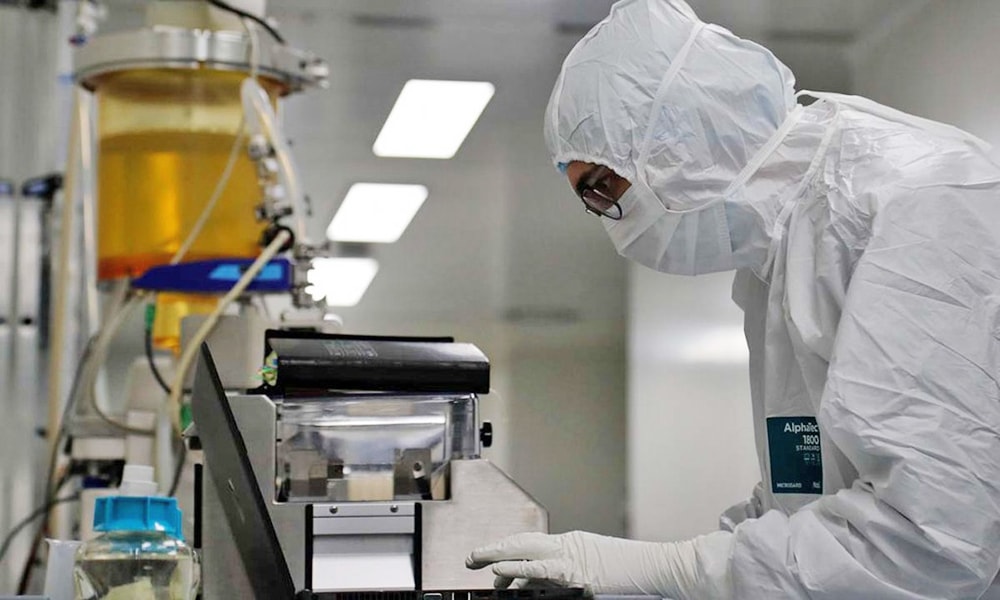 |
| Data set up during Covid-19 vaccine research at a laboratory in St. Petersburg, Russia. Photo: Reuters |
Western experts are skeptical not only about the speed, but also about Russia's ability to launch a vaccine in September. Peter Shapiro, a pharmaceutical analyst at British research firm GlobalData, said that regulatory standards in Russia are quite low. For Western scientists, Russia is not a major producer in the export industry of quality drugs and biological products. Therefore, even if a Covid-19 vaccine is approved in Russia, it will not be very welcome and accepted in the West.
Trade Minister Denis Manturov affirmed that Russia's goal is to put the Covid-19 vaccine into mass production in September, with the ability to initially ensure the production of hundreds of thousands of doses per month and will increase capacity to several million doses starting in 2021. A vaccine manufacturer is preparing production technology at three locations: Moscow, Vladimir, and Yaroslavl.
Collapsed by tragedy
"Battlefield", "apocalyptic scene", "no different from the atomic bomb in Japan", "ruins and death"... These are the descriptions of the capital Beirut of Lebanon, after a huge explosion, equivalent to 240 tons of TNT, tore through the sky. About 300,000 houses were destroyed, killing at least 145 people, and injuring more than 5,000. Rescue workers are struggling to treat thousands of injured people with limited resources. Some hospitals cannot be mobilized because they are too old and dilapidated.
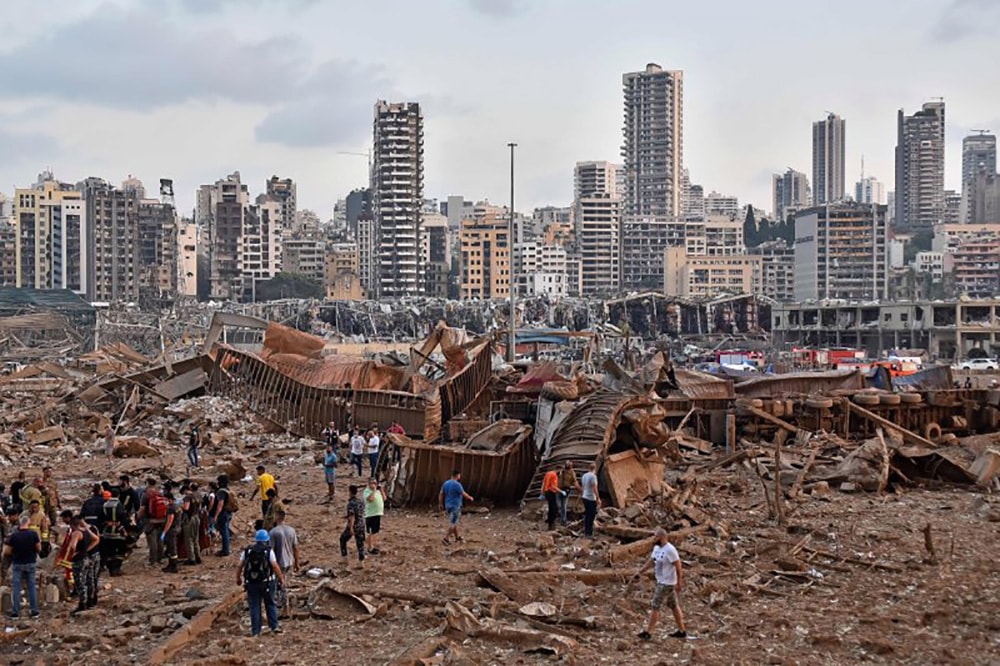 |
| The scene of the explosion near Beirut port, Lebanon on August 4. Photo: AFP |
The terrible explosion occurred at a time when Lebanon was devastated by a series of crises, from a 15-year civil war, regional conflicts, to the Covid-19 pandemic, protests, and a devastated economy.
It is worth mentioning that 2,750 tons of ammonium nitrate - the cause of the disaster, has been stored at Beirut port for the past 6 years, but the government has not handled it, has not taken any measures to protect or control it. The people's anger and indignation have risen because the tragedy did not come from any hostile forces, but from the negligence and lack of responsibility of the government.
Many see the blast as the culmination of years of mismanagement and mismanagement in the country. They also have lost faith that the government will follow through on its investigation and help them overcome their difficulties, despite the authorities' pledge to hold those responsible for the tragedy to account.
For decades, the crisis has eroded the Lebanese people’s trust in their government. It has even forced many to leave their homes. According to official statistics, nearly half of Lebanon’s population lives below the poverty line and 35% are unemployed. In March, Lebanon declared itself unable to pay its debts for the first time in its history. Total government debt now stands at $92 billion, nearly 170% of GDP, one of the highest in the world.
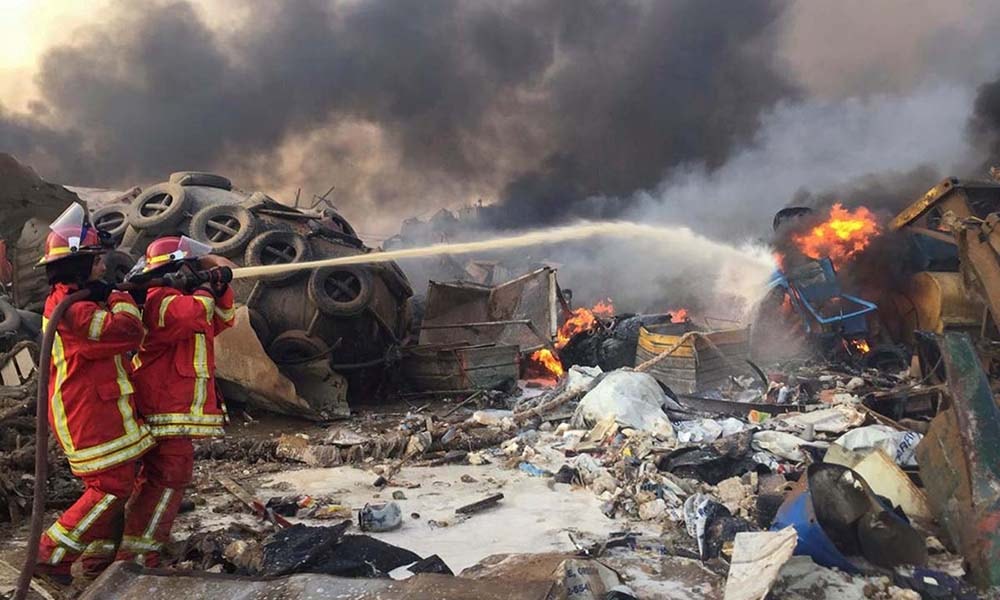 |
| Firefighters put out a fire after an explosion in Beirut, Lebanon. Photo: Reuters |
Lebanon, which once aimed to rebuild its country into a cultural and financial hub in the Middle East, has become increasingly elusive. Drowning in debt and political paralysis, the August 4 explosion has become a new crisis, making Lebanon seem to be waving the white flag of surrender.
Several countries and humanitarian organizations have stepped in to help Lebanon. Australia announced a $1.4 million donation to the United Nations World Food Program and the Lebanese Red Cross, while France, Germany and Russia sent search and rescue and medical teams to help non-governmental groups.
However, the Lebanese people do not want the world's aid to fall into the hands of the government, so that the mistake is repeated again. Therefore, countries also avoid assisting the victims through the Lebanese government. Many experts believe that a committee should be established, possibly including some trusted Lebanese officials and foreign leaders, to monitor the spending of aid to rebuild Beirut.
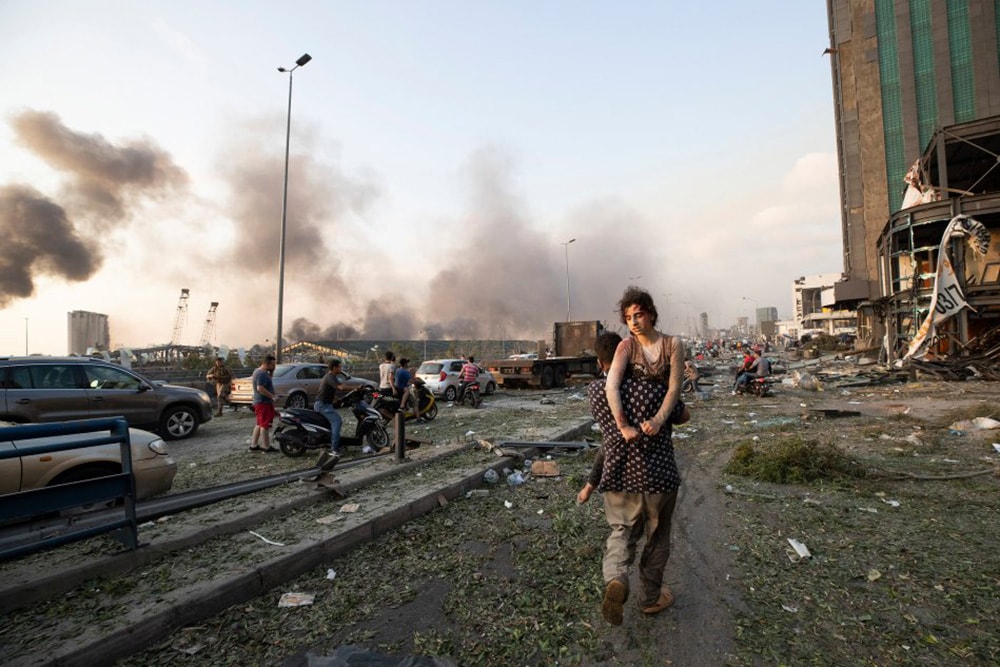 |
| Scenes of devastation and casualties after a large explosion in the capital Beirut. Photo: AP |

